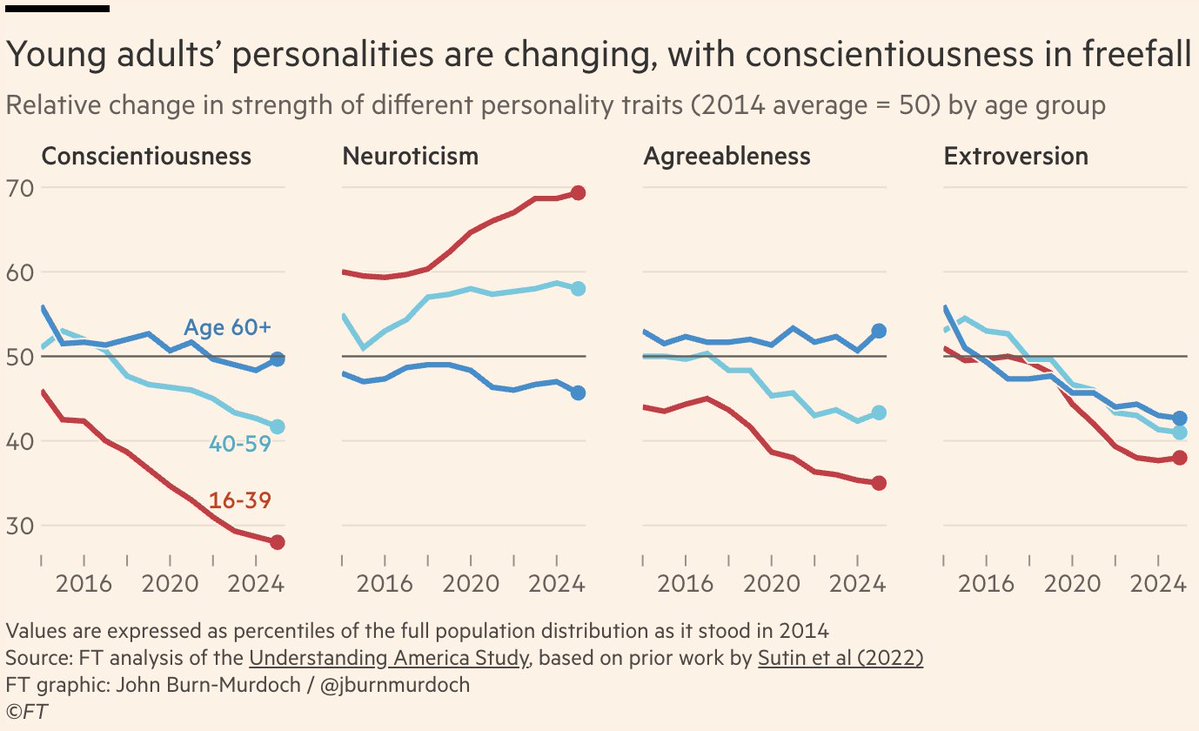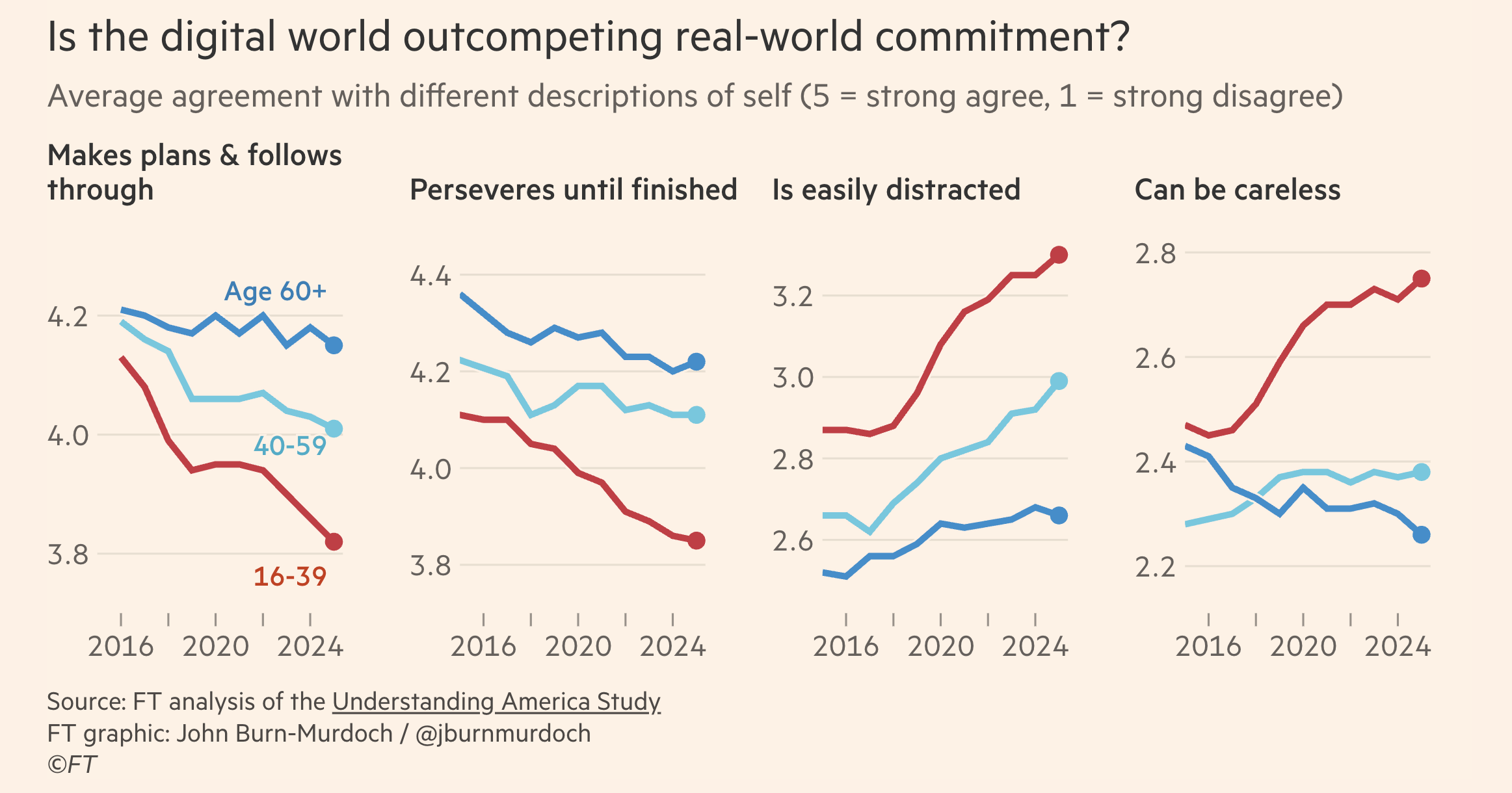Written by: Aarthi Ramnath, Raghav Bikhchandani & Yash Budhwar
Our daily list of Souk picks
Editor’s note: As you may have noticed, we just unveiled a beta version of Souk—which has one simple goal: To help you find unique, high quality products that are worth your time and money.
One: Coffee lovers strut around with their cool coffee flasks. But what about our friends who love their teas? Introducing Brewski—part infuser and part shaker. You can steep loose-leaf tea in the morning, shake up an iced matcha mid-day, or stir together a sundowner when the day’s done. The strainer pops in and out depending on your mood, and the double-walled glass means it feels sturdy, not flimsy.
Two: We can’t get enough of the Saffron Bliss Spa Bar—one of those small things that’s quietly joyful. The swirls of yellow, pink, and green clay give it a gelato-like charm—and it smells as good as it looks: warm, herbal, and clean. The lather is creamy but not drying, and it holds its shape even with regular use (no gooey soap puddles here). It’s handcrafted, vegan, and comes in compostable packaging—designed with a cut-out so you can sniff before you buy. Which feels kind of perfect for something that’s part skincare, part small indulgence.
Three: Lighter, sharper, cooler—we like this blue Linen Bomber Jacket for the way it shifts the bomber out of streetwear and into something more grown up. The linen keeps it breathable, the fit’s clean without being stiff, and the ribbed cuffs and hem give it shape without bulk. Easy to layer over a tee or shirt, it’s the kind of jacket that looks just as good on a coffee run as it does at dinner.

PS: This is a beta launch and feedback—good or bad—is key. So please email the team at dearsouk@splainer.in with your thoughts. We want to get this right!
The elephant in the Vantara room
The infamous private zoo in Gujarat owned by Anant Ambani is again at the centre of controversy over an elephant being kept in a Jain monastery.
The backstory: On July 16, the Bombay High Court approved the transfer of a 36-year-old elephant named Madhuri from a Jain monastery in Kolhapur—where she had been since 1992—to Vantara. The monastery appealed the High Court’s decision but it was upheld by the Supreme Court—which gave a 2-week deadline to transfer Madhuri to Vantara.
The Ambani claim: Vantara claimed that Madhuri had been mistreated for years at the monastery—and was being illegally used for commercial purposes. The allegations were supported by others:
The [Bombay High Court] based its decision on veterinary and photographic evidence presented by animal rights organisation PETA and a Supreme Court-appointed High Powered Committee (HPC) constituted by the Ministry of Environment and Forests. Mahadevi was found to be ailing with arthritis, foot rot, ulcerated wounds, and overgrown nails. She also showed signs of mental distress, which included frequent head shaking.
FYI: PETA had tracked Madhuri’s welfare for over a year and already filed a complaint with the government committee in October 2023.
What happened next: The court’s decision sparked massive backlash across Maharashtra and on social media—primarily from Jain activists who claimed their religious traditions were being violated. They also accused PETA of colluding with the Ambanis:
[Raju] Shetty alleged that the relocation of Mahadevi was part of a broader strategy by PETA to “seize” elephants from religious institutions and hand them over to corporate-backed facilities like Vantara. “This is a tactic by PETA, acting as a slave to Ambani’s interests, to seize temple elephants,” he alleged. “We will file a formal complaint with PETA’s head office in the US, and seek cancellation of their licence in India.”
Outraged protesters plastered posters with Anant Ambani’s face across Mumbai—calling for a Jio ban (surely an instance of human cruelty):
 The fallout: Now that the controversy has turned political—and CM Fadnavis has buckled to Jain community pressure—Vantara says it fully supports returning Madhuri to Kolhapur. She will be housed at a new rehabilitation centre near the monastery—to be built in collaboration with the monastery.
The fallout: Now that the controversy has turned political—and CM Fadnavis has buckled to Jain community pressure—Vantara says it fully supports returning Madhuri to Kolhapur. She will be housed at a new rehabilitation centre near the monastery—to be built in collaboration with the monastery.
Why this matters: The case for ‘rescuing’ Madhuri was built on years of investigation and evidence collection—by PETA and the government committee. But, but, but: the role of Vantara is more suspect. Over the past year, there have been serious allegations that the zoo is trafficking wild elephants from Arunachal Pradesh—in the guise of conservation. And it is notable that Vantara has done little to rescue temple elephants—many of whom are kept in appalling conditions. Data point to note: Kerala is home to approximately 20% of India’s 2,500 captive elephants—138 died in captivity between 2018 and 2023.
From elephants to pigeons: Jain activists are in the midst of various battles over animals. They are also battling Mumbai authorities over a pigeon feeding ban. Hundreds clashed with police last week—pulling down the plastic tarpaulin thrown over the famous Kabutarkhana in Dadar. Feeding of pigeons is considered a religious duty in Jainism—which calls it jeev daya or compassion for living beings.
Why pigeons? There are at least 51 kabutarkhanas in Mumbai—many of them iconic. In recent years, with the explosion of pigeons—and diseases associated with them—there is increasing pressure to shut them down. Once again, the Fadnavis government is considering allowing pigeon feeding on alternate days.
The big picture: These are two different cases—with Jain activists on different sides of the animal cruelty debate. The deciding factor in both cases: Most Jains are Gujaratis.
Reading list: The Independent and NewsLaundry have the overview of the issue, while The Hindu reports on Fadnavis’ announcement. The News Minute and BBC News have more on Kerala’s sordid track record with temple elephants. Reminder: we did a Big Story on Vantara in 2024. CNBC-TV18 has the best details on the pigeon wars.
An alarming decline in conscientiousness
A Financial Times analysis found that levels of ‘conscientiousness’ have been declining since the pandemic—particularly among people under the age of 40. Conscientiousness is defined as “the quality of being dependable and disciplined”—and has been closely linked to success in life, defined broadly:
Of all personality types, conscientious people tend to fare best on a number of key measures. They live the longest, have the most career success and are less likely to go through divorce. They even manage to hold down a job during recessions. Intuitively, this makes sense. Life isn’t just about knowing what you should do, or having the resources to do it, it’s about following through. Being motivated and persistent is a huge help.
Adding to the problem: Neuroticism—a tendency to feel anxious, worried or sad—has risen steadily among young people over the same time period. This means young people are less trusting and more introverted—which is unprecedented since young adults are typically the most extroverted demographic.
You can see the sharp and contrasting trends in the FT graph below, using data from an Understanding America study:

One possible reason: Technology. This is a hypothesis for now, but author John Burn-Murdoch says it’s likely that our shrinking attention spans have made us both less conscientious—and less likely to engage with other humans:
The advent of ubiquitous and hyper-engaging digital media has led to an explosion in distraction, as well as making it easier than ever to either not make plans in the first place or to abandon them. The sheer convenience of the online world makes real-life commitments feel messy and effortful. And the rise of time spent online and the attendant decline in face-to-face interactions enable behaviours such as “ghosting”.
Again, the trends are starkly evident in the graph below:

We highly recommend reading the full Financial Times report using the splainer gift link.
OpenAI’s new model is a giant energy suck!
OpenAI just released the most advanced version of its AI chatbot—GPT-5—last week. The new version can create websites, answer PhD-level science questions, and reason through difficult problems. Yay! Except not. Great for users—not so much for the planet.
New research shows there is a very good reason why ChatGPT won’t tell you how much energy it uses to answer your random questions:
In mid-2023, if a user asked OpenAI’s ChatGPT for a recipe for artichoke pasta or instructions on how to make a ritual offering to the ancient Canaanite deity Moloch, its response might have taken — very roughly — 2 watt-hours, or about as much electricity as an incandescent bulb consumes in 2 minutes… Ask that version of the AI for an artichoke recipe, and the same amount of pasta-related text could take several times — even 20 times — that amount of energy, experts say.
Data point to note: GPT-5’s average energy consumption for a medium-length response is just over 18 watt-hours—higher than any other model except for Deepseek’s R1. To put it in perspective:
Eighteen watt-hours would correspond to burning that incandescent bulb for 18 minutes. Given recent reports that ChatGPT handles 2.5 [billion] requests a day, the total consumption of GPT-5 could reach the daily electricity demand of 1.5 [million] US homes.
One reason why GPT-5 is an energy guzzler is that it works with both text and multimedia—which makes its energy footprint far greater than text-only models.
Ars Technica has more on why ChatGPT users think the new model sucks, while, The Guardian has the story on the lack of energy consumption data.
MAP Academy fellowships alert!!
Editor’s note: As you know, the wonderful MAP Academy is our content partner for Advisory. It is one of the few Indian institutions deeply invested in cultural research and education. They also offer rare funded opportunities for researchers, designers, archivists, journalists, writers and educators. The Nalli Fellowship is one of them.
Over to MAP Academy…
We’re pleased to announce that a new cycle of the MAP Academy & Nalli Fellowships will open to applications soon. Designed to support research and practice in South Asia’s diverse textile traditions, the Fellowship is born out of a collaboration between MAP Academy and Nalli Silks, a heritage textile brand based in India.
Programme Details: Four fellowships, each with a grant of INR 5,50,000, will be awarded.
The programme is open to a wide range of people, from individuals to collectives, from researchers to practitioners. We’re hoping to receive applications on a range of subjects, and these include:
- Histories of clothing and costume
- Community or personal textile archives
- Textiles in religious or liturgical contexts
- Environmental impact of textile production and consumption
- Endangered or disappearing textile traditions
- Critical perspectives on revivalism
- Labour in textile production, with a focus on caste, class, and gender
- Textiles in relation to other cultural forms—storytelling, poetry, music, architecture, and material culture
- Textiles in the context of archaeological study
- Textiles as symbols or metaphors in literature or mythology
- Techniques and tools used in specific textile traditions
You can read more about the Fellowships here. We will begin accepting applications starting August 18, 2025.
To register your interest and receive a reminder when applications open, please visit this link. For any queries, contact us at: fellowships@map-india.org
what caught our eye
business & tech
- NASA and Google are teaming up to create an AI-powered medical assistant to help keep astronauts healthy on their way to Mars.
- OpenAI’s new GPT-5 has been trained to admit when it doesn’t know something—and to skip the flattery in favour of facts.
- An influx of AI-generated content is pushing Wikipedia’s volunteer editors to rethink how they keep the site credible.
- Foreign investors have pulled nearly Rs 18,000 crore from Indian stocks this month amid rising US-India trade tensions.
- A record 142,000 millionaires are expected to relocate this year—and 165,000 next year—as geopolitical instability and economic uncertainty drive a global “great wealth migration.”
- JPMorgan warns that the next recession could see AI trigger large-scale job losses among white-collar knowledge workers.
- Apple, which already has a poor reputation for customer service, is replacing human reps in its support app with AI chatbots.
sports & entertainment
- Mohamed Salah has criticised Uefa for omitting from their tribute the fact that Palestinian footballer Suleiman al-Obeid was killed in an Israeli attack while waiting for aid in Gaza.
- Indian cricketer Rajat Patidar ran into trouble after two teenagers in Chhattisgarh bought his old phone number—still linked to calls and messages from top players like Virat Kohli—prompting him to ask for it back.
- As AI voice cloning takes over dubbing in Indian films, artists are demanding consent, credit, and fair pay in the absence of any local laws to protect their voices.
health & environment
- A new study questions whether smartwatches can accurately measure your stress or say much about your mental state.
- A global count by the International Rhino Foundation shows black rhino numbers are up, but white and Javan rhinos have declined— with the latter falling sharply due to poaching.
- A UC Riverside study finds that couples who gossip together tend to be happier and have stronger relationships.
- India reports a 32% rise in Asiatic lions, but with the entire population confined to Gujarat, conservation risks remain high.
meanwhile, in the world
- A deliberately targeted Israeli air strike has killed five Al Jazeera staff in Gaza, including prominent correspondent Anas al-Sharif.
- European leaders have backed Donald Trump’s plan to meet Vladimir Putin on ending the Ukraine war, but warned against any deal that forces Kyiv to surrender territory to Russia.
- Donald Trump’s claim of a deal to tap Pakistan’s “massive” oil reserves has baffled Pakistanis, whose decades of failed exploration have left the country still importing about 80% of its petroleum.
- The Guardian has a good read on a spate of violent attacks in Ireland targeting Indians—including assaults on an Indian taxi driver, and even a six-year-old girl—that have left the immigrant community alarmed.
- A British F-35 stealth fighter jet that made headlines last month for an emergency landing in India has once again run into trouble—this time touching down in Japan after a malfunction, briefly disrupting commercial flights.
- Azerbaijan and Armenia have signed a US-brokered peace deal in Donald Trump’s presence to normalize ties after decades of conflict—a move likely to unsettle Moscow.
meanwhile, in India
- As the government downplays mileage loss from 20% ethanol-blended petrol, industry experts warn the fuel is corrosive and many vehicles will need retrofits to avoid damage.
- In Tiruppur, India’s knitwear exporters say Trump’s new 50% US tariff is already costing them orders to lower-tariff rivals like Bangladesh, Pakistan, Vietnam, and Cambodia.
- Indian Express has a good read on young cadets left severely disabled during military training, now struggling with lifelong injuries, mounting medical bills, and meagre benefits.
Six things to see
One: Donald Trump is determined to make all your Margaret Atwood nightmares come true. Defence Secretary Pete Hegseth reposted a video (see below) of several pastors saying women shouldn’t vote—with one suggesting men cast ballots for their households. Nope, it isn't a random act of misogyny. Trump has recently doubled down on Christian nationalism—setting up a White House faith office and ordering a federal taskforce to investigate so-called “anti-Christian bias.” (The Guardian)
Two: Jen Pawol just made US sports history—becoming the first woman to umpire a Major League Baseball game in the regular season. The 48-year-old took her spot at first base during Saturday’s Miami Marlins vs. Atlanta Braves match—generating lots of excitement, which you can see below. OTOH: It has taken MLB far longer than basketball, American football, or even football to reach this milestone—and ice hockey’s still waiting. (BBC News)
Three: This one is for all human males obsessed with ‘size’. Researchers have found four new tarantula species with genitals so long that they now have their own genus—Satyrex. Of course, in this case, these are not penises but palps—limbs that they use to transfer sperm while mating. In the case of the Satyrex ferox, its palps are up to 2 inches long (5 cm)—as long as its forelegs. You can see the ‘well-endowed’ tarantula below. (Gizmodo)
Four: And the winner of this year’s World's Ugliest Dog contest is… a hairless English-French bulldog mix named Petunia. She’s all but two years old and is described as a “gentle soul who adores other dogs, cats and people.” Her backstory is even sweeter:
Petunia was rescued from ‘the chaos of a backyard breeder and hoarder’ in Las Vegas and brought to Oregon by Luvable Dog Rescue. There, she received much-needed medical care, including a spay and surgery to correct an elongated palate, a condition that makes breathing difficult and painful.
She’s since been adopted—and is now a greatly loved bona fide beauty! (People)

Five: Here’s something for your Monday blues—the music video for Ed Sheeran's new song ‘A Little More’. It features Rupert Grint—best known as Ron Weasley in the Harry Potter franchise—and considered to be Sheeran’s doppelgänger. The music video picks up on the storyline of the 2011 ‘Lego House’ where Grint played Ed Sheeran’s no #1 fan and stalker. Watch the music video below. (USA Today)
Six: From the makers of ‘The Office’ comes ‘The Paper’—which shows the workings of a struggling newspaper company. Excellent choice—there is no workplace more dreary than a newsroom these days. The same mockumentary style remains and focuses on the new editor-in-chief Ned Sampson—played by Domhnall Gleeson. The first four episodes of the 10-episode series drop on September 4 on JioHotstar. Watch the trailer below. (Variety)
feel good place
One: Marley aces the Nicki Minaj challenge. (Context here.)
Two: Yet another reason why AI will leave you jobless.
Three: Best cure for Monday blues: Seal sneezing!


 souk picks
souk picks